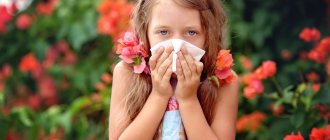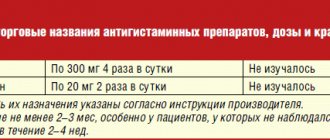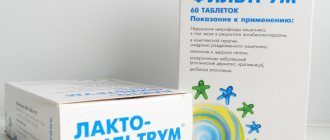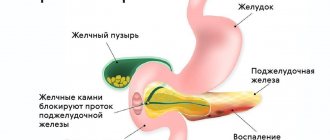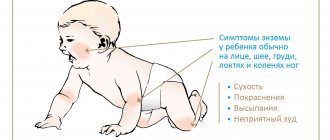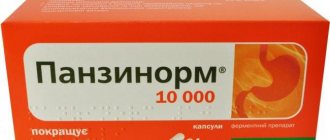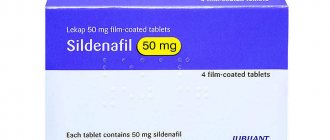In our modern and dynamically changing world, with its comfort and advancing progress, the number of new diseases, including in childhood, has increased significantly. One of these diseases is the growing allergy. Sometimes it is very difficult to understand what causes the body to show signs of this disease. Especially when it comes to a child’s body. Next, we’ll find out what medications are suitable for allergies for children?
Causes of vaginal itching
The most common causes that are easily corrected are exogenous factors:
- Wearing synthetic underwear. Unnatural fabrics often cause irritation of the delicate intimate area in women, which is accompanied by unpleasant sensations in the groin area. If you experience itching in the vagina, it is first recommended to pay attention to the quality of your underwear.
- Mechanical damage. Burning, discomfort, pain and itching in the vagina without discharge, especially during sexual intercourse, may indicate increased dryness of the mucous membrane, which leads to friction and irritation. In this case, it is recommended to use intimate lubricant. Damage to the genital area can also occur during shaving and depilation. To avoid unpleasant sensations, you should use moisturizing shaving products and soothing products after hair removal.
- Insufficient hygiene. A feeling of itching in the vagina is a common symptom of irregular hygiene of the intimate area. This applies not only to bathing, but also to the timely replacement of pads or tampons during menstruation.
- Reaction to cosmetics. Severe itching in the vagina, accompanied by dryness and flaking, indicates the body's reaction to products with a high level of acidity. In this case, you should change the intimate hygiene gel.
What causes allergies?
Diathesis in infants
An Austrian pediatrician in the twentieth century first noticed the hypersensitivity of his patients to the effects of the same substance on their body. These substances that cause allergy symptoms are called allergens. When they penetrate into the child’s body, a protective reaction begins, caused by the action of the immune system. The child’s immune system tries to suppress the allergen that has entered the body. After the initial contact of a child’s immune system with an allergen, his system tries to remember the type of foreign substance, which, if it enters the body again, triggers the launch of sensitive immune cells.
At this moment, an inflammatory response begins to develop, in the form of increased blood flow, the appearance of tissue swelling and an increase in temperature. These symptoms, when intensified, can even threaten the life of a child’s body. In the modern world, the following reasons are identified that can cause the development of allergies in children:
Possible gynecological causes
- lice pubis;
- candidiasis (thrush);
- vaginal dysbiosis;
- colpitis;
- vulvovaginitis;
- kraurosis of the vulva;
- urethritis;
- genital herpes;
- molluscum contagiosum;
- ureaplasmosis;
- chlamydia;
- mycoplasmosis;
- gonorrhea;
- genital warts;
- inguinal granuloma;
- trichomoniasis, etc.
Other possible causes: diabetes, allergies (including to partner’s sperm), helminthic infestation, diseases of the digestive or urinary system.
The risk group includes women at menopausal age, since the production of estrogen decreases and the mucous membrane gradually becomes thinner.
Diathesis in children
You should not self-medicate!
Diathesis or excessive tendency of the child’s body to manifest and develop allergic symptoms or conditions of inflammatory processes. Diathesis often occurs in the first years of a child’s life. This disease refers to a specific form of allergy manifestations in childhood. According to statistics, many children in their first and second years of life suffer from diathesis.
The organisms of infants are more susceptible to diathesis. When this form of allergy occurs, so-called diaper rash appears on the skin. These are a kind of areas of the skin that appear on the head in its scalp. In addition, with diathesis, the child notices the appearance of a milky scab that forms in the area of the bright red cheeks.
In most cases, the cause of diathesis in infants is the food they eat. This could be the wrong choice of artificial food for the baby or the wrong nutrition of the expectant mother carrying the baby. Manifestations of diathesis serve as a harbinger of the appearance in the future of infants of such diseases as: psoriasis, seborrheic dermatitis, eczema, neurodermatitis. Therefore, the expectant mother should carefully monitor her own diet, exclude quick snacks, not eat foods containing large amounts of dyes and carcinogens, not use genetically modified vegetables and fruits in cooking, and also give up alcohol.
The causes of diathesis in children are frequent manifestations of toxicosis during pregnancy, the use of various types of pharmacotherapy during the baby’s intrauterine development, as well as excessive consumption of food allergens by the expectant mother (citrus fruits, nuts, eggs, honey).
Treatment for vaginal itching
How to treat vaginal itching depends on the cause of origin, clinical features and accompanying symptoms. If the problem is non-medical in nature, it is enough to eliminate the negative risk factor - change underwear or care products for the intimate area, take a shower regularly, etc.
What to do with vaginal itching in other cases is decided only by a doctor, since treatment of the underlying disease is required.
Itching of the vaginal mucosa caused by candidiasis is treated with antifungal antibiotics and synthetic antifungal agents: econazole, clotrimazole, levorin, nystatin, ketoconazole, etc.
For inflammatory and infectious gynecological diseases, anti-inflammatory and antibacterial agents are prescribed.
If the cause is dysbacteriosis, antiseptic drugs for vaginal itching (for example, Hexicon, Vaginorm-S), as well as eubiotics (for example, Lactobacterin, Acylact) are effective.
Treatment of vulvar kraurosis requires an integrated approach. In this case, unpleasant itching in the vagina is helped to eliminate hormonal medications (estrogens, progesterone), glucocorticosteroids (betamethasone, hydrocortisone, prednisolone), antihistamines (clemastine, loratadine).
In each case, the doctor prescribes a remedy for vaginal itching individually as part of complex therapy for the underlying disease. Topical medications (creams, ointments, and vaginal suppositories for vaginal itching) are commonly used, but in certain circumstances, systemic therapy using oral, intramuscular, or intravenous medications is required.
Allergy treatment
If a child develops an allergic condition associated with increased symptoms of the disease, first aid should be provided immediately. Firstly, you need to immediately remove or stop contact of the allergen with the baby’s body. If you are outside, where there is a variety of pollen from flowering plants, you should immediately go indoors. If an allergy is caused by contact with a pet, you need to remove it from the child. In cases of allergies and certain types of food, you must stop eating it.
If you switched to artificial feeding and the child developed an excessive rash on the body, which is also a manifestation of an allergy, you need to change the type of complementary food for the child. In other words, in the first stages of the fight, contact of the child’s body with the source of allergens should be stopped.
Allergic reactions manifest themselves in different ways
When the attending physician has accurately determined the type of allergen that causes excessive allergic symptoms in the child’s body, the child must be given an antihistamine antiallergic drug prescribed by the doctor. Next, you need to alleviate the symptoms of an allergic disease appearing on the body. Areas of skin where the baby experiences itchy skin can be anointed with salicylic alcohol. Any other alcohol tincture is also good for such cases.
If a child begins to experience attacks of anaphylactic shock, you should immediately call the hospital for an ambulance. Before the ambulance arrives, the child should be provided with an unimpeded flow of air into the lungs. To do this, in a stuffy room, you need to open the window and unbutton the clothes on the child’s chest. You should not use drugs that have an excessive odor, as this can lead to an increase in the symptoms of bronchospasm in the child’s body.
FAQ
What can cause itching?
Itching in the vagina in women can occur for a variety of reasons - from wearing synthetic underwear and untimely replacement of sanitary pads to dysbacteriosis, diabetes and sexually transmitted diseases.
Is itching possible after antibiotics?
It's possible. During antibiotic therapy, dysbacteriosis often occurs, one of the symptoms of which is itching.
What is the most effective treatment?
A doctor will not be able to name the most effective remedy for vaginal itching without knowing its cause. Therefore, correct diagnosis is very important. You should not resort to douching with infusions of medicinal herbs and use antipruritic medications on your own.
Allergy definition
Mom's allergies can be passed on to the unborn baby
The pharmacy chain offers a huge number of medications that can have a positive effect and eliminate the symptoms of the disease. But when it comes to a child, it is important not only to get rid of allergies, but also not to cause significant harm to the growing body. Therefore, modern mothers face the difficult task of choosing an anti-allergenic drug that can have a therapeutic effect and be absolutely safe for their children.
Self-medication in this case is in no way encouraged; only an experienced doctor can provide proper assistance to a child with allergies. In this article, I would like to consider the characteristics of allergies, the causes of their occurrence, and consider a set of medications for treating children from this disease.
Not all symptoms that impair a child’s performance and well-being should be attributed to allergies. Many of them are signs of the development of other diseases in the child’s body. Allergies in children are characterized by itching, redness of the skin, sneezing, tearing and much more. If these signs appear in a child after a walk or contact with a certain group of objects, it means that the body has actually picked up some allergen, and the disease began to develop in the child.
Allergy refers to a whole complex of symptomatic manifestations caused by the high sensitivity of the immune system to foreign substances or allergens. Symptomatic manifestations of an allergic disease in a child’s body are:
- The appearance of edema;
- Attacks of incessant sneezing;
- Itching in certain areas of the skin;
- Severe runny nose;
- Tearing.
These signs are the most common signs of this disease in a child’s body. If they are detected, the mother should consult a pediatrician to stop the development of the disease and prevent the appearance of deeper symptoms. In a medical institution, experienced specialists will definitely give full advice on the treatment of the disease. Based on the test results, the doctor will be able to determine the type of allergen that causes allergic symptoms in the child. It is not worth joking and neglecting such a disease in a child’s body, since the consequences of neglect can be the most unpredictable. It is also not recommended to buy and give medications to a child without consulting a doctor, since the child may develop an allergy to the components of the medications themselves.
Children's allergy medications
Scientists divide the variety of medicines produced in the world that eliminate allergy symptoms into three large groups:
- The first group of allergy medications includes medications that were one of the first to be released to combat it. This includes diphenhydramine, known to many generations, diazolin, which effectively helps our parents, and, of course, Tavegil, which is well known in our country. Today, the effectiveness of these drugs is not the highest and can lead to various side effects on the child’s body. The most common of them are: the appearance of excessive drowsiness, a feeling of dryness in the child’s mouth, as well as a significant slowdown in the body’s behavioral responses. The latter, in turn, are by no means contraindicated in childhood.
- The second group of drugs includes antihistamines. These include Zyrtec and Claritin.
- Scientists include the third group of drugs: Telfast and Erius. Unlike the first group of allergy medications for children, these medications are practically safe for the child’s body.
Fenistil
Tavegil for the treatment of allergies
A good medicine for the manifestation of allergic symptoms in childhood is a new drug called fenistil. This medicine has a positive and mild effect, eliminating any allergy and its symptoms. The drug fenistil can be used by children from the first month of life. The medication should be taken based on the recommendations of the attending physician, but it should not be given before the child falls asleep.
